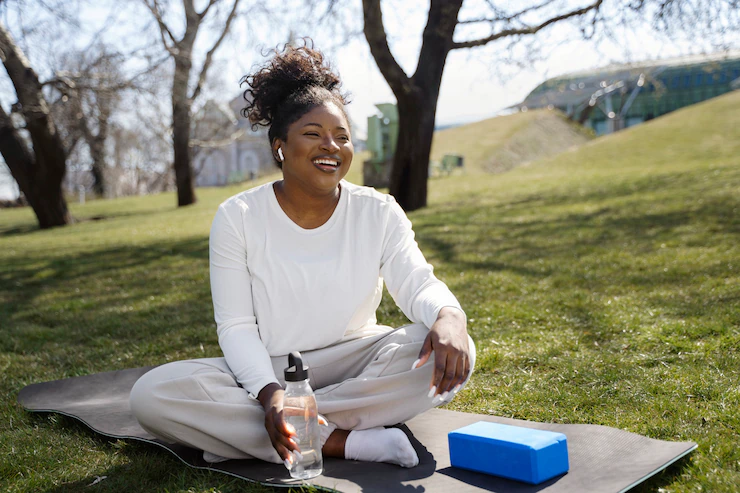Physical exercise is often associated with improving physical fitness and maintaining a healthy weight. However, its benefits extend beyond the physical realm and play a significant role in promoting mental health and well-being. Engaging in regular exercise has been shown to have a positive impact on various mental health conditions, including depression, anxiety, stress, and overall emotional well-being. In this article, we will explore the role of exercise in boosting mental health and provide insights into how you can incorporate exercise into your daily routine.
- Releases Feel-Good Chemicals: Exercise stimulates the release of endorphins, neurotransmitters in the brain that promote feelings of pleasure and reduce pain perception. These endorphins act as natural mood boosters and can help alleviate symptoms of depression and anxiety.
- Reduces Stress and Anxiety: Physical activity has a direct impact on the body’s stress response. Exercise helps reduce levels of stress hormones such as cortisol and promotes the production of endorphins, which act as natural stress relievers. Regular exercise can help manage and reduce anxiety symptoms.
- Improves Sleep Quality: Regular exercise has been shown to improve sleep quality and duration. A good night’s sleep is crucial for mental health, as it helps regulate emotions, enhances cognitive function, and promotes overall well-being. Engaging in physical activity during the day can contribute to a more restful and rejuvenating sleep.
- Boosts Self-Esteem and Confidence: Regular exercise can improve self-esteem and body image, leading to increased confidence. Achieving fitness goals, experiencing physical improvements, and feeling more energized can positively impact self-perception and overall self-worth.
- Enhances Cognitive Function: Exercise has been linked to improved cognitive function, including memory, attention, and processing speed. It increases blood flow to the brain, stimulates the growth of new brain cells, and enhances brain plasticity. These cognitive benefits can support better mental focus, concentration, and overall mental clarity.
- Provides a Sense of Achievement and Purpose: Setting fitness goals and accomplishing them through regular exercise provides a sense of achievement and purpose. Whether it’s completing a challenging workout, reaching a new personal best, or participating in a physical event, these accomplishments can boost self-confidence and instill a sense of purpose and motivation.
- Promotes Social Interaction: Participating in group exercise classes or team sports provides an opportunity for social interaction and connection. Social support and a sense of belonging have a positive impact on mental health. Engaging in exercise with others can foster new friendships, reduce feelings of isolation, and create a supportive community.
- Acts as a Healthy Coping Mechanism: Exercise can serve as a healthy and constructive way to cope with stress, anxiety, and other emotional challenges. Instead of resorting to unhealthy coping mechanisms such as excessive alcohol consumption or unhealthy eating habits, turning to exercise can provide a productive outlet for managing emotions and relieving tension.
- Enhances Overall Well-being: Regular exercise contributes to overall well-being by promoting a balanced lifestyle. It can improve energy levels, reduce fatigue, increase vitality, and enhance overall quality of life. Engaging in physical activity can help individuals feel more in control of their mental health and lead to a greater sense of well-being.
Incorporating Exercise Into Your Routine:
- Choose activities you enjoy: Find physical activities that you genuinely enjoy, whether it’s walking, dancing, cycling, swimming, or practicing yoga. Enjoyment will increase the likelihood of sticking to your exercise routine.
- Start small and gradually increase: Begin with small increments of exercise and gradually increase the duration and intensity over time. This approach allows your body to adapt and helps prevent injury.
- Make it a habit: Schedule regular exercise sessions into your weekly routine and treat them as non-negotiable appointments with yourself. Consistency is key to reaping the mental health benefits of exercise.
- Find accountability: Exercise with a friend, join a fitness class, or seek a workout buddy who can provide support and motivation. Having someone to exercise with can make the experience more enjoyable and help you stay committed.
- Be flexible and diverse: Mix up your exercise routine to keep it interesting and challenging. Try different activities, alternate between cardio and strength training, or incorporate outdoor activities to keep your workouts engaging and varied.
Remember, before starting any new exercise regimen, it’s essential to consult with your healthcare provider, especially if you have any underlying health conditions. They can provide personalized advice and ensure that you engage in activities that are safe and suitable for your specific needs.
In conclusion, regular exercise is not only beneficial for physical health but also plays a crucial role in promoting mental well-being. By incorporating exercise into your daily routine, you can experience the positive effects it has on your mood, stress levels, self-esteem, and overall mental health. So, lace up your sneakers, find an activity you love, and embark on a journey toward better mental and physical well-being.










